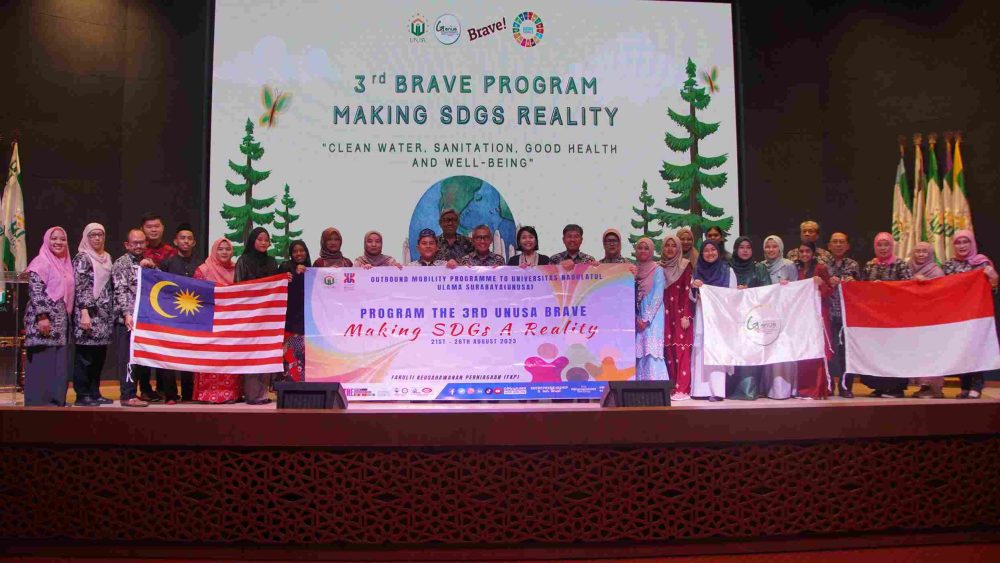Environmental problems experienced by many countries, including Indonesia. Seeing this issue, the Global Engagement of Universitas Nahdlatul Ulama Surabaya held the 3rd Brave Program with the theme Making SDGs Reality ‘Clean Water, Sanitation, Good Health, and Well Being’. This activity was followed by 14 participants from Universiti Malaysia Kelantan.
This program held by Genus aims to support the achievement of Sustainable Development Goals (SDGs). The event was opened by holding a seminar on Monday (21/8) that raised important issues in the field of environment and welfare which also presented two speakers namely Achmad Syaifuddin as Unusa Water Scientist and Armytanti Hanum as Regional Corporate Affairs Manager of Coca-cola Europacific Partners Indonesia.
In this event, Achmad Syafiuddin explained the importance of access to clean water for the community, especially in the context of traditional Islamic boarding schools. He said that 49.4% of Islamic boarding schools in Indonesia are traditional Islamic boarding schools and their daily activities still use river water around the Islamic boarding schools without any filtration.
“Distribution of water without filtration can cause various diseases such as itching or skin diseases and even throat diseases, and this can disrupt daily activities, that’s why we need to focus on the case of clean water and the need to provide clean water filters, especially in traditional Islamic boarding schools,” he explained.
The second theme in the seminar was ‘Sustainability for a Better Shared Future Especially for Plastic Management’ which was explained by Armytanti Hanum. As part of a company that produces plastic packaging, Armytanti explained that companies currently need to focus on plastic management issues, one of which is by using rPET plastic packaging or plastic that can be recycled.
“Every plastic producing company needs to pay attention to its impact on the environment. The use of rPET or recycled plastic can be done as an innovative solution and an effort to achieve SDGs goals,” he said.
Armytanti added that companies also need to carry out a human rights audit program as a form of corporate CSR towards the surrounding social environment.
“The human rights audit program itself is carried out as a form of corporate social care, for example by providing health or educational support to waste pickers or plastic scavengers who help collect our company’s plastic waste,” he explained. (Nrl/Humas)

